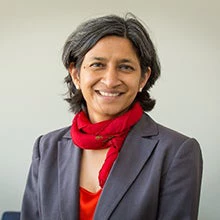 At the World Bank's Social Protection and Jobs Core Learning and Solutions Services or “CLASS” in Fiumicino, Italy on May 21, 2024. Photo credit: Aaron Buchsbaum, World Bank
At the World Bank's Social Protection and Jobs Core Learning and Solutions Services or “CLASS” in Fiumicino, Italy on May 21, 2024. Photo credit: Aaron Buchsbaum, World Bank
Last week, I had the privilege of meeting policymakers and practitioners from 35 lower- and middle-income countries who gathered near Rome. They were joined by Bank experts to share experiences in scaling national social protection programs to adapt to crises while addressing the challenge of increasing poverty. This learning event is the first Social Protection and Jobs Core Learning and Solutions Services—or “CLASS”—offered as part of the new World Bank Group Academy.
This program builds on over 20 years of experience
Over the last two decades the World Bank has supported the expansion of national social protection programs in countries across the world. These programs are built through learning-by-doing, by testing innovations in the design and delivery of services and benefits that reach poor households and by systematic peer-to-peer knowledge exchange among countries. This new course is another milestone in fusing client experience with the Bank’s knowledge to arrive at practical solutions. The course focuses on scaling up social protection to help poor households adapt to income shocks while continuing to invest in the health and education of their children, build assets, accumulate savings, and create their own small businesses.

Audrey Deer-Williams, Chief Technical Director, Social Security Division, Ministry of Labour and Social Security, Jamaica and Saifeddine Jarray, IT Engineer, Ministry of Social Affairs, Tunisia
A new strategic focus and vision
With over 10,000 evaluations of social protection interventions, we know what works. Yet three out of four extreme poor households in low-income countries have no access to any social protection. We need countries to have higher ambitions of scale.
The World Bank is in a position to support countries in covering over 250 million people with its current financing of $29 billion for social protection. This coverage has grown consistently via investments in targeted cash assistance, public works, pension schemes, and household-based economic inclusion initiatives. If continued investments are made in building adaptive social protection systems, there is scope for doubling this coverage to half a billion households by 2030. To reach this target, the Social Protection and Jobs CLASS aims to be the platform that combines financing and knowledge exchange to promote continued learning and innovations put to action.
Over the course of the next few months, the Bank’s Social Protection and Jobs team will cover more topics for more participants through CLASS. These include labor mobility, pensions and aging, jobs for the poor, and youth employment.
More practitioner-led learning
Topics covered in CLASS—whether through in-person or online sessions—will draw heavily on practical knowledge from the Bank’s operations in countries and innovative approaches from governments around the world. Last week’s session featured successful government-led initiatives from Ukraine, Moldova, Uzbekistan, Pakistan, Sierra Leone, Lesotho, Rwanda, Malawi, Ethiopia, Chile, North Macedonia, and Italy.
Government representatives with hands-on experience shared their challenges, opportunities, and lessons learned in applying innovations in program design and practical tools to improve their social protection systems.

David Kariuki, Social Development Officer, Directorate of Social Assistance, Ministry of Labour and Social Protection, Kenya and Christabel E. Dadzie, Sr. Social Protection Specialist, World Bank
Enhanced use of digital solutions
CLASS will consistently make efforts to draw the most out of technology and different learning pedagogies. In Rome, participants learned about how to build digital social registries that are dynamic, linked to digital payment systems, and have agile grievance redressal mechanisms. They also learned from Italy’s experience designing a digital case management system for the beneficiaries of its guaranteed minimum income program. These same innovations in Italy were influenced by Chile’s experience, and now Italy has become a source of inspiration to low- and middle-income countries including Armenia, Jamaica, Moldova, and Mozambique. This is a testament to the World Bank’s role as a “global knowledge exchange” Bank. This knowledge exchange also benefits us, as we develop adaptable e-learning modules and other training options for our own staff learning through CLASS.
Looking ahead
As demand for courses such as this one grows, the Bank’s renewed focus on knowledge —encompassing technical expertise, operational experience, data, and research— takes on a sense of urgency, as countries face the multiple challenges of slow growth, mounting fiscal pressures, and rising numbers of people going hungry.
This first convening in Rome is a critical step in the Bank’s journey of turning knowledge into action, part of our resolve to become a better bank—and it’s just the start. I can’t wait to hear about the next CLASS session on migration scheduled in Bangkok this June. Stay tuned as we work with—and learn from—partners to constantly improve, share, and multiply the knowledge of what works when it comes to investing in people.
To receive weekly articles, sign-up here


Join the Conversation